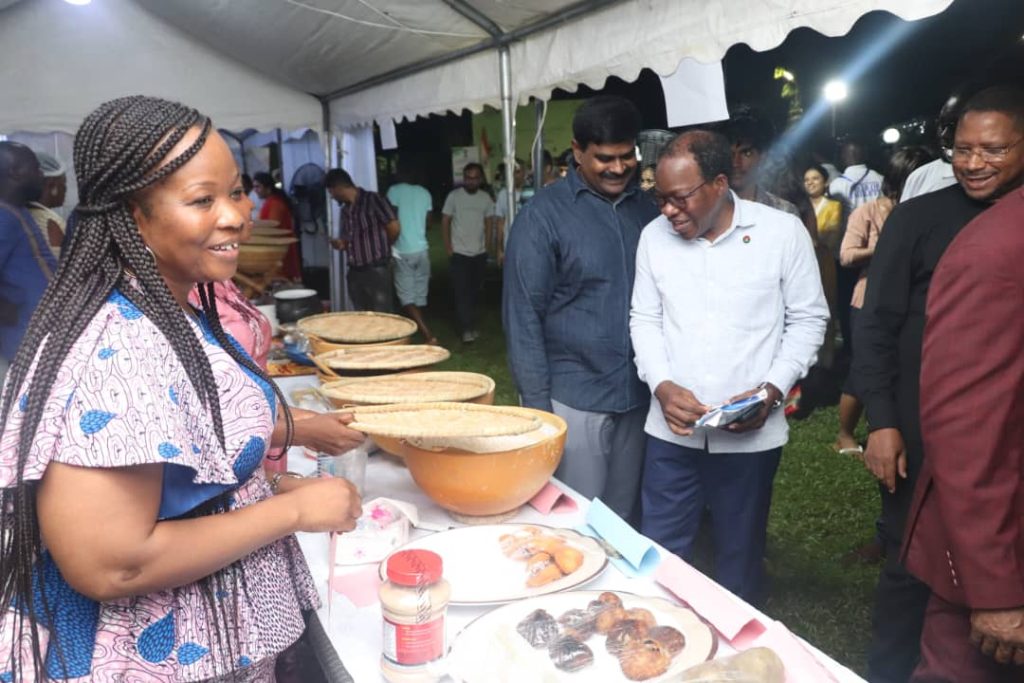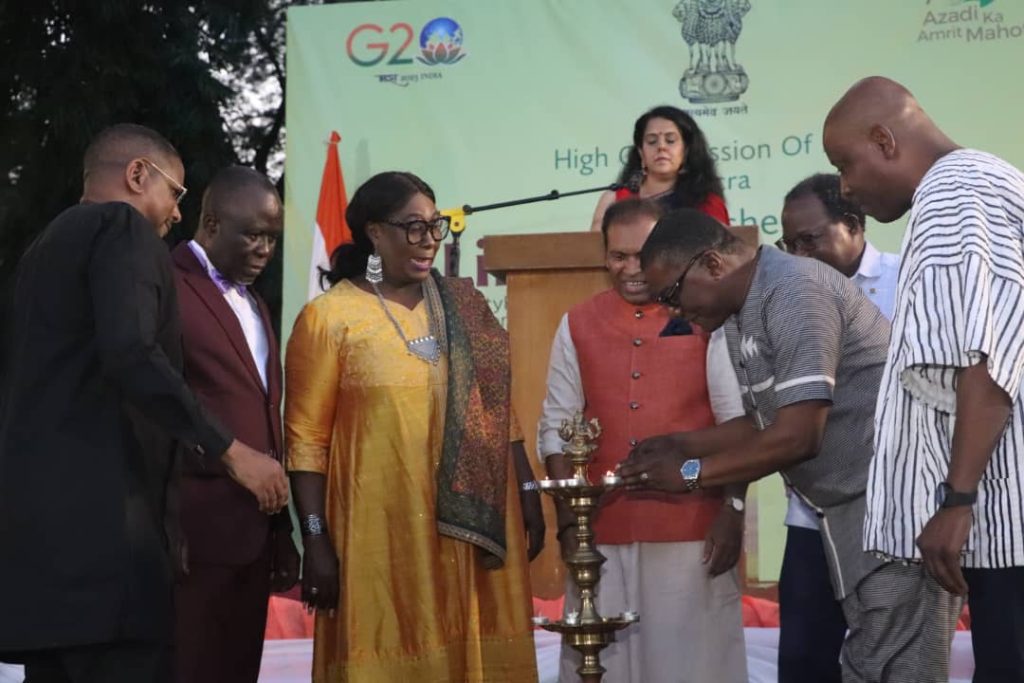By Priscilla Oye Ofori
Accra, Feb 27, GNA- Mr Sugandh Rajaram, Indian High Commissioner to Ghana, has called for the promotion of the consumption of millet globally for sustainable growth, a good environment and a healthy economy.
He said the promotion of the cultivation of millets, its consumption and its export globally would make humanity healthy, the environment sustainable, raise the income of farmers from developing countries and ensure food security.
Mr Rajaram made the call at the launch of the International Day of Millets 2023 (IYoM 2023) and the Lifestyle for Environment (LiFE) Campaigns during the Indian Food Festival in Accra organised by the Indian High Commission.

The Indian Food Festival is intended to raise awareness of and direct policy attention to the nutrition and health benefits of millet.
As part of the Festival, a competition dubbed “Millets in my food competition” was held and awards presented to deserving participants.
In Ghana, millet is highly cultivated in the Northern Region.
The International Day of Millets Campaign is an Indian initiative launched by the United Nations (UN) and international communities this year, whiles the LiFE Campaign was launched in Glasgow, COP Summit and also recently launched in India with the participation of UN’s Secretary General, Mr Antonio Guterres.
LiFE advocates for people to change their lifestyle to suit the environment, including food habits, and IYom promotes the adoption of an environmentally friendly food lifestyle.
Mr Rajaram said millet, largely grown in the developing countries of the world, the Global South, formed a significant part of food and national economies since a large number of the agricultural rural populations depended on the cultivation, consumption and income from its sales.
He said millets were the most nutrient-rich food commodities and the most healthy food for humanity, which required less water and inputs in cultivation and were climate resilient making it an environment friendly crop.
‘‘We are increasingly experiencing difficulties to maintain sustainable health with the traditional diet but the millet, which is protein-rich, gluten-free but at the same time provides various nutrients in terms of vitamins and minerals, will replace not only what we get through our traditional diet, but at the same time what the larger section of humanity is using as health supplements,’’ Mr Rajaram said.
The High Commissioner underscored the need for a comprehensive and holistic approach to tackle the issues of climate change and other dangerous environmental issues globally since the efforts were mostly limited to the energy transition.
Mr Yaw Frimpomng Addo, Deputy Minister for Food and Agriculture, said since 2017, Ghana had taken a strategic approach to diversify its food sources and tree crops by directing greater resources to the promotion of non-traditional crops.
He said agriculture presented the best opportunity for rapid development of the country, hence, the Government had invested massively in it by providing input subsidies to about 1.7 million farmers annually under the Planting for Food and Jobs campaign, and other game-changing initiatives.
‘‘We are keen to work with our development partners, particularly the private sector to modernise and transform the agricultural sector. In our consideration, India is certainly a trusted partner for operationalising our vision for agriculture,’’ Mr Addo added.
The Deputy Minister said investment in agro-processing equipment such as grains cleaners and de-stoners to help improve the overall quality of millet in the country and make it competitive was imperative.
‘‘This is one area we require once again, the support from our friends in India to help us get the necessary equipment as you have been doing,” he stated.

Mrs Tina Gifty Naa Ayeley Mensah, Deputy Minister of Health, pledged Ghana’s support in ensuring that the purpose of the initiatives was achieved successfully.
She commended the Indian government for its support in Ghana’s developmental projects through the provision of loans of credit and grants.
Representatives from institutions, including the Ministry of Agriculture, Women in Agriculture Development, Ghana National School Feeding Programme, the Council for Scientific and Industrial Research, and the Ghana Export Promotion Authority exhibited millet products, including locally prepared food from millet.
GNA